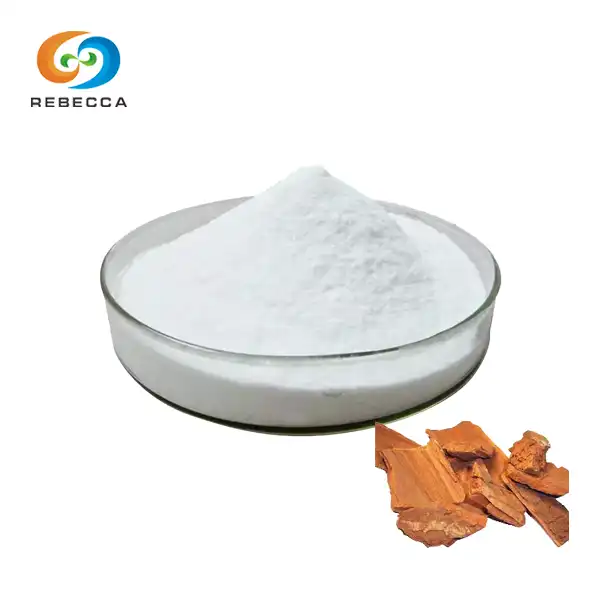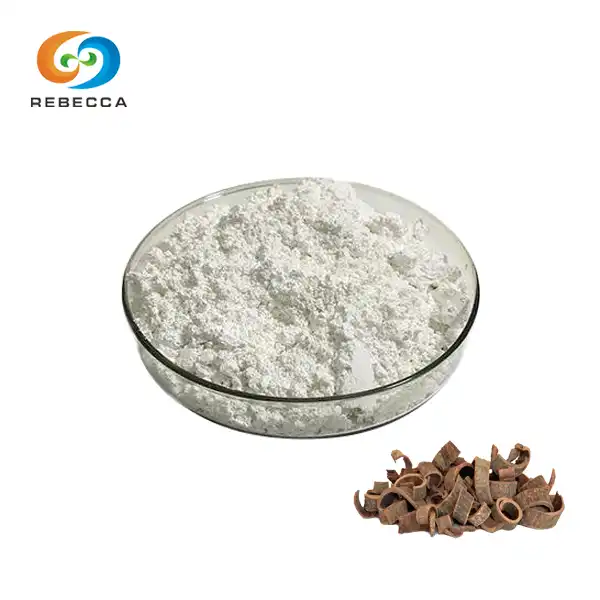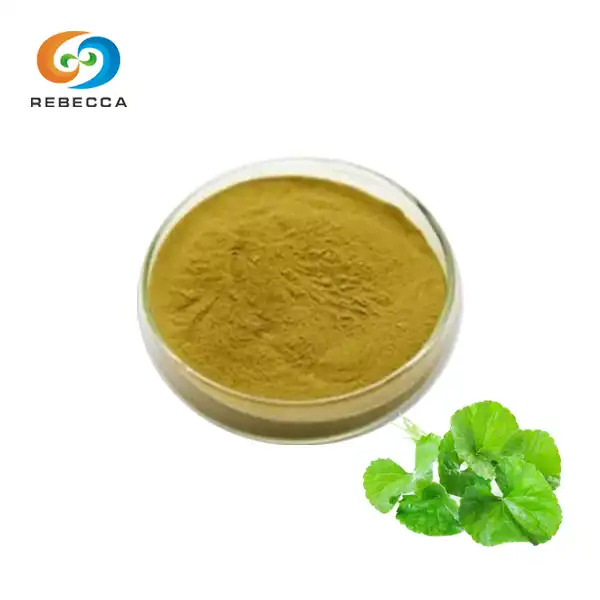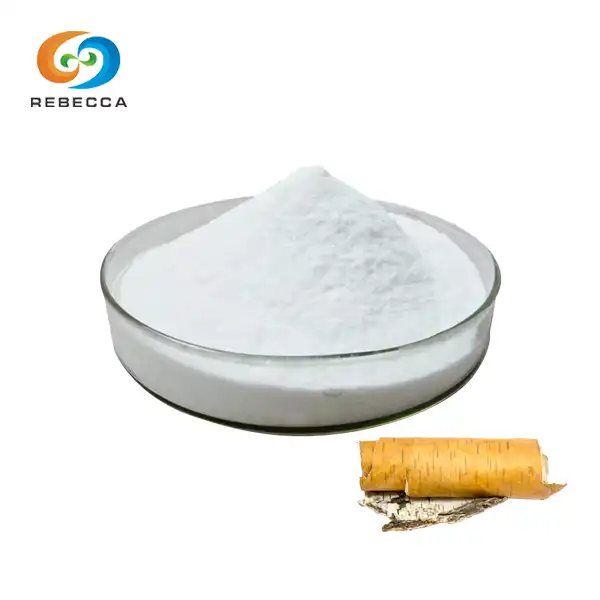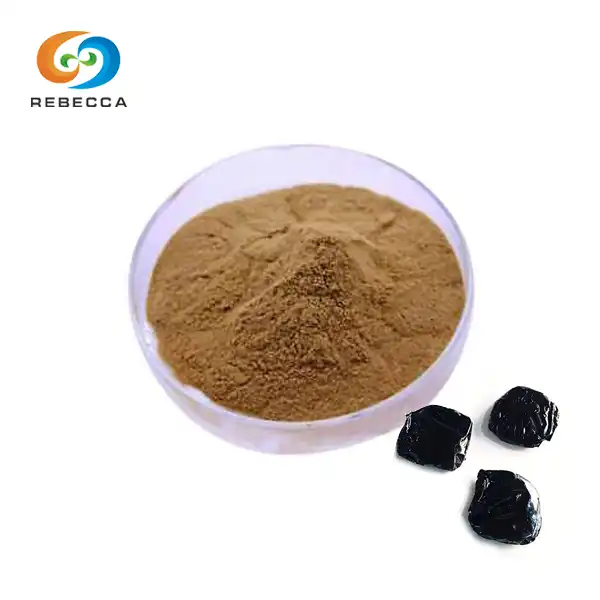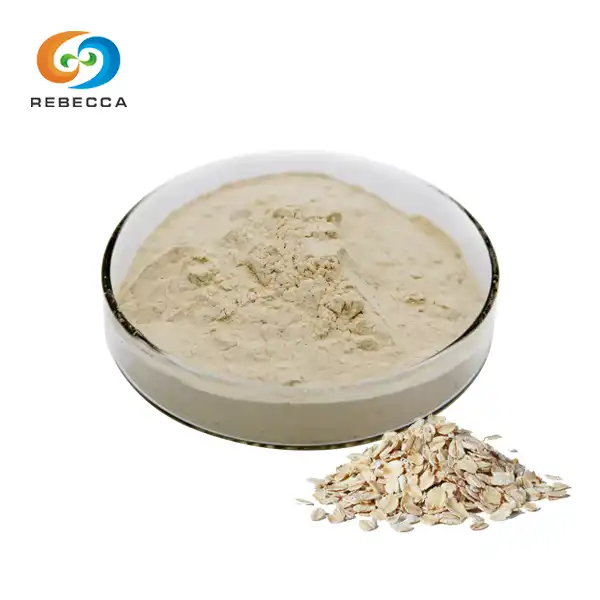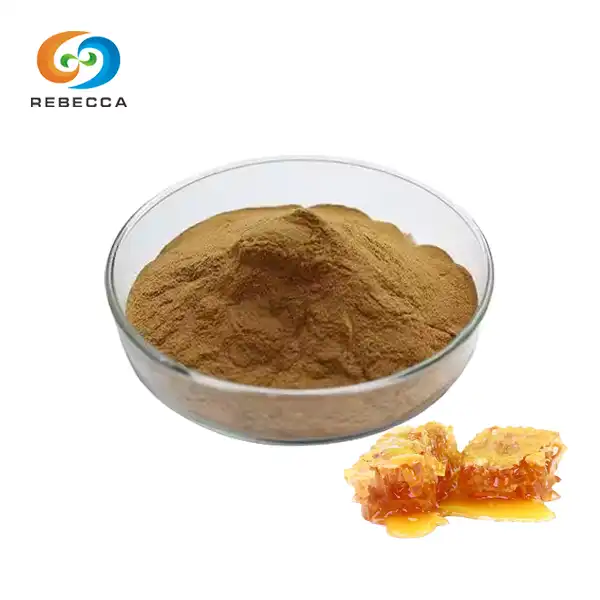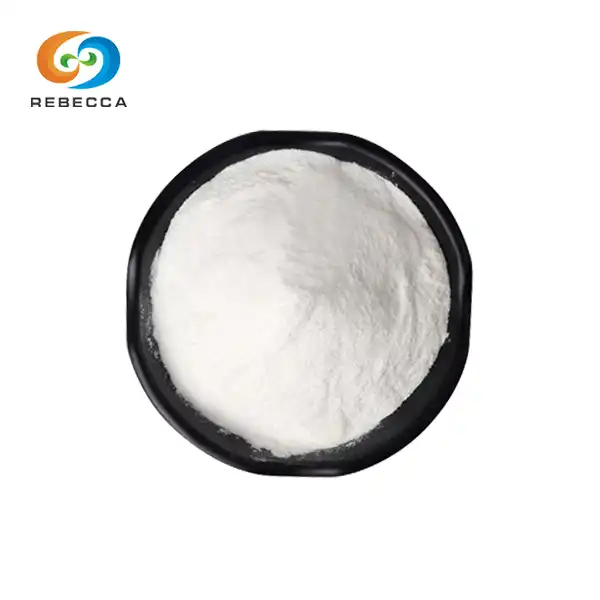What is fucoxanthin in skincare?
In recent years, the skincare industry has seen a surge of interest in natural ingredients that offer unique benefits. One such ingredient gaining attention is organic fucoxanthin, a carotenoid pigment found primarily in brown seaweed. This powerful compound is making waves in the beauty world for its potential skin-enhancing properties. In this article, we'll explore what fucoxanthin is, its benefits for the skin, its suitability for different skin types, and the skincare products that contain this marine-derived ingredient.
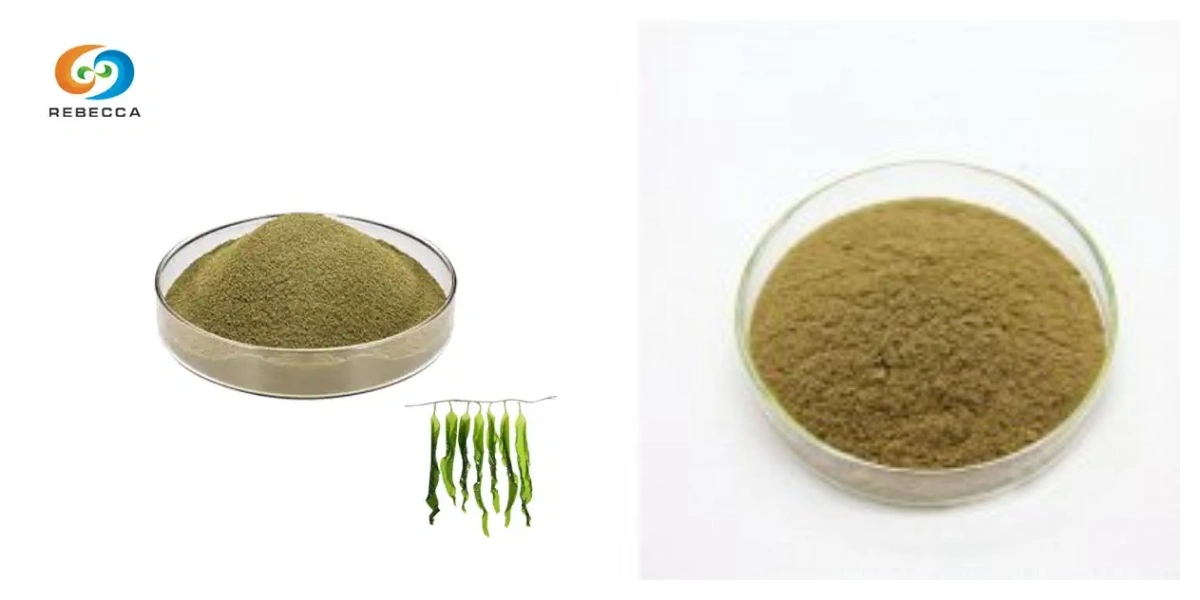
What is Fucoxanthin and Its Role in Skincare?
Fucoxanthin is a xanthophyll carotenoid, a type of organic pigment that gives brown algae its characteristic color. It's abundant in various species of brown seaweed, such as wakame, kombu, and hijiki. While it has long been recognized for its potential health benefits when consumed, its topical application in skincare is a more recent development.
In skincare, fucoxanthin powder or fucoxanthin extract is used for its potent antioxidant properties. This compound has a unique molecular structure that allows it to interact with skin cells in ways that other carotenoids cannot. Its structure includes an unusual allenic bond and a 5,6-monoepoxide group, which contribute to its strong antioxidant activity.
The incorporation of fucoxanthin into skincare formulations is part of a broader trend toward using marine-derived ingredients in beauty products. These ingredients are often rich in minerals, vitamins, and unique compounds that can benefit the skin in various ways. Fucoxanthin, in particular, is being studied for its potential to protect the skin from environmental stressors and promote overall skin health.

How Does Fucoxanthin Benefit the Skin?
- Powerful Antioxidant Protection: As a potent antioxidant, organic fucoxanthin helps neutralize free radicals that can damage skin cells. This protection can help prevent premature aging caused by environmental factors such as UV radiation and pollution.
- Anti-Inflammatory Properties: Research suggests that fucoxanthin may have anti-inflammatory effects on the skin. This property could be beneficial in managing skin conditions characterized by inflammation, such as acne or rosacea.
- Potential Skin-Lightening Effects: Some studies indicate that fucoxanthin might inhibit tyrosinase, an enzyme involved in melanin production. This could potentially help in reducing hyperpigmentation and promoting a more even skin tone.
- UV Protection: While not a substitute for sunscreen, it has shown potential in protecting skin cells from UV-induced damage. This added layer of protection could complement your regular sun protection routine.
- Moisture Retention: It may help improve the skin's barrier function, leading to better moisture retention. This can result in skin that feels more hydrated and looks plumper.
- Potential Anti-Aging Effects: By combining its antioxidant, anti-inflammatory, and moisturizing properties, it may help reduce the appearance of fine lines and wrinkles, contributing to a more youthful-looking complexion.
It's important to note that while these benefits are promising, more research is needed to fully understand the extent of its effects on the skin when applied topically. The concentration of fucoxanthin in skincare products and its ability to penetrate the skin effectively are factors that can influence its efficacy.

Is Fucoxanthin Suitable for All Skin Types?
One of the appealing aspects of fucoxanthin powder in skincare is its potential suitability for a wide range of skin types. However, as with any skincare ingredient, individual responses can vary, and it's always best to patch test new products before incorporating them into your routine.
For Oily and Acne-Prone Skin: Its anti-inflammatory properties may be particularly beneficial for those with oily or acne-prone skin. It could help in reducing inflammation associated with acne breakouts and may assist in regulating sebum production.
For Dry and Sensitive Skin: Its potential moisturizing effects can be beneficial for dry skin types. Its anti-inflammatory properties might also make it suitable for sensitive skin, although those with very reactive skin should always proceed with caution when trying new ingredients.
For Mature Skin: The antioxidant and potential anti-aging properties of fucoxanthin make it an interesting ingredient for those concerned with signs of aging. It may help in reducing the appearance of fine lines and improving overall skin texture.
For Normal and Combination Skin: These skin types can also benefit from the overall protective and potentially balancing effects of fucoxanthin.
While fucoxanthin appears to be well-tolerated by most skin types, it's important to remember that everyone's skin is unique. Factors such as the concentration of fucoxanthin in a product, other ingredients in the formulation, and individual skin sensitivities can all play a role in how well your skin responds to fucoxanthin-containing products.
If you have any specific skin concerns or conditions, it's always a good idea to consult with a dermatologist before introducing new active ingredients into your skincare routine. They can provide personalized advice based on your skin type and concerns.

What Skincare Products Contain Fucoxanthin?
As the benefits of fucoxanthin become more widely recognized, an increasing number of skincare brands are incorporating this ingredient into their formulations. Here are some types of products where you might find it:
- Serums and Concentrates: These products often contain higher concentrations of active ingredients, making them a popular choice for delivering fucoxanthin to the skin. Look for serums that list fucoxanthin or brown algae extract in their ingredients.
- Moisturizers and Creams: Day and night creams may include fucoxanthin for its antioxidant and potential anti-aging properties. These products can help deliver its benefits while also providing hydration.
- Sunscreens: Some sunscreen formulations are starting to include fucoxanthin for an added layer of protection against UV damage. Remember, though, that fucoxanthin is not a replacement for proper sun protection.
- Face Masks: Both sheet masks and cream masks may contain fucoxanthin, offering a boost of this marine ingredient in a treatment format.
- Eye Creams: The delicate skin around the eyes can benefit from its antioxidant properties, making it a useful ingredient in eye care products.
- Toners and Essences: These lighter-weight products might include fucoxanthin to provide antioxidant benefits in earlier steps of a skincare routine.
When shopping for fucoxanthin-containing products, you might see it listed under various names, including:
- Fucoxanthin
- Fucoxanthin extract
- Brown algae extract
- Phaeophyceae extract
It's worth noting that the concentration of fucoxanthin can vary significantly between products. Some may use a pure fucoxanthin extract, while others might use a brown algae extract that contains fucoxanthin along with other beneficial compounds. The effectiveness of the product will depend not only on the presence of fucoxanthin but also on its concentration and how it's formulated with other ingredients.
As with any skincare ingredient, consistency is key to seeing results. It may take several weeks of regular use before you notice any significant changes in your skin. Additionally, fucoxanthin is often most effective when used as part of a comprehensive skincare routine that includes proper cleansing, moisturizing, and sun protection.

Fucoxanthin Powder Supplier
Looking to secure a reliable partner for your production needs? Look no further than Rebecca Bio-Tech. With our three advanced production lines, we produce over 100 high-quality products, including fucoxanthin powder, with an annual capacity exceeding 2,000 tons. Our commitment to a stable supply chain ensures consistent availability for your business. We offer competitive pricing and provide free samples along with MSDS documents, showcasing our dedication to transparency and customer satisfaction. Reach out to us at information@sxrebecca.com to learn more and take the first step towards a successful partnership.
References:
- Peng, J., Yuan, J. P., Wu, C. F., & Wang, J. H. (2011). Fucoxanthin, a marine carotenoid present in brown seaweeds and diatoms: metabolism and bioactivities relevant to human health. Marine drugs, 9(10), 1806-1828.
- D'Orazio, N., Gemello, E., Gammone, M. A., de Girolamo, M., Ficoneri, C., & Riccioni, G. (2012). Fucoxanthin: a treasure from the sea. Marine drugs, 10(3), 604-616.
- Heo, S. J., & Jeon, Y. J. (2009). Protective effect of fucoxanthin isolated from Sargassum siliquastrum on UV-B induced cell damage. Journal of Photochemistry and Photobiology B: Biology, 95(2), 101-107.
- Shiratori, K., Ohgami, K., Ilieva, I., Jin, X. H., Koyama, Y., Miyashita, K., ... & Ohno, S. (2005). Effects of fucoxanthin on lipopolysaccharide-induced inflammation in vitro and in vivo. Experimental eye research, 81(4), 422-428.
- Shimoda, H., Tanaka, J., Shan, S. J., & Maoka, T. (2010). Anti-pigmentary activity of fucoxanthin and its influence on skin mRNA expression of melanogenic molecules. Journal of pharmacy and pharmacology, 62(9), 1137-1145.
